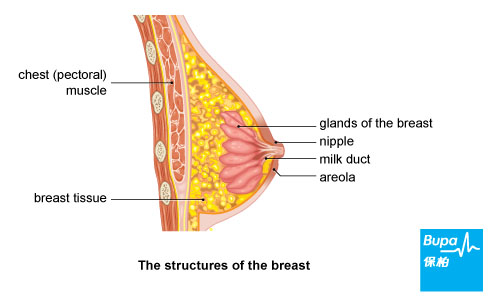
Inflammatory breast cancer, also known as IBC, is extremely rare and usually thought to be a form of infection
But, this type of cancer can spread and grow rapidly. It usually causes swelling, redness, and swelling in the affected area. IBC usually doesn't cause lumps in the breast tissue.
The symptoms of IBC are the same for most types of breast cancer, but the skin may be raised or lumpy. Also, the patient may experience pain, discomfort, and tenderness in her chest area. Sometimes, the cancer may be detected on an x-ray or mammogram, but it is more likely to develop on a self-examination at home.
IBC is different from other forms of breast cancer because it affects the lymph nodes. This means that the cancer is "sitting" there, waiting to come out. Because it can grow and spread very quickly, it often goes undiagnosed until it has spread to the lymph nodes. Also, because it affects the lymph nodes, IBC is very resistant to standard treatments. So, it is important to immediately contact a doctor or health professional if you have any symptoms that are similar to those of breast cancer.
Many women who have inflammatory breast cancer find that their cancer spreads more rapidly, and sometimes they do not even show any symptoms at all. If your doctor suspects that you may have IBC, he or she will likely test you for this condition.
Treatment for IBC is aimed at slowing or even stopping the growth of the cancer. Usually, doctors try to kill the cancer cells that are already in the body or that are growing in another part of the body. Chemotherapy drugs are often used, but sometimes surgery is done as well.
Sometimes, your doctor may recommend that you undergo a procedure known as mastectomy, where the cancer is removed from the chest through your chest muscle. A breast implant can be used to replace the lost breast.
One of the most common treatments for IBC is radiation. Sometimes, the treatment will involve a combination of chemotherapy, surgery, and radiation.
There are other options that can be tried, but none of them guarantee that the cancer will not return. and grow. If you have ever had invasive breast surgery, especially if you are over 30 years old, talk to your doctor.
If you are younger than 30, however, most of the time the cancer is not diagnosed until after it has spread and reached its final stage. This is when most women with IBC go into remission. In many cases, when cancer has spread to the lymph nodes, it will stop growing there and will stop spreading. But sometimes, the cancer will grow and spread.
Some women with breast cancer have a recurrence. If you have had surgery or radiation therapy for this reason, your doctor will probably be monitoring your case closely to see if you develop a new breast cancer. In some cases, when the cancer has spread to other parts of the body, the radiation and surgery that you had may have had may not have been able to treat the cancer in the breast tissue. In this case, you may need to have a procedure known as a lumpectomy to remove the cancer.
The treatment for IBC is different for each woman. If you or a family member is concerned that they might develop this type of breast cancer, see your doctor for information on how to take care of themselves during this difficult time.
If you are pregnant, you may also have an increased risk of developing this form of breast cancer. If you have a family history of breast cancer, talk to your doctor about the possibility that the cancer might be hereditary. If the cancer has spread, it can be treated much more aggressively, but it will require the same types of treatments as those who have the cancer without a family history.
It is also important to get regular mammograms. If you are concerned that you may be at risk, make sure that you are regularly examined by your doctor.
